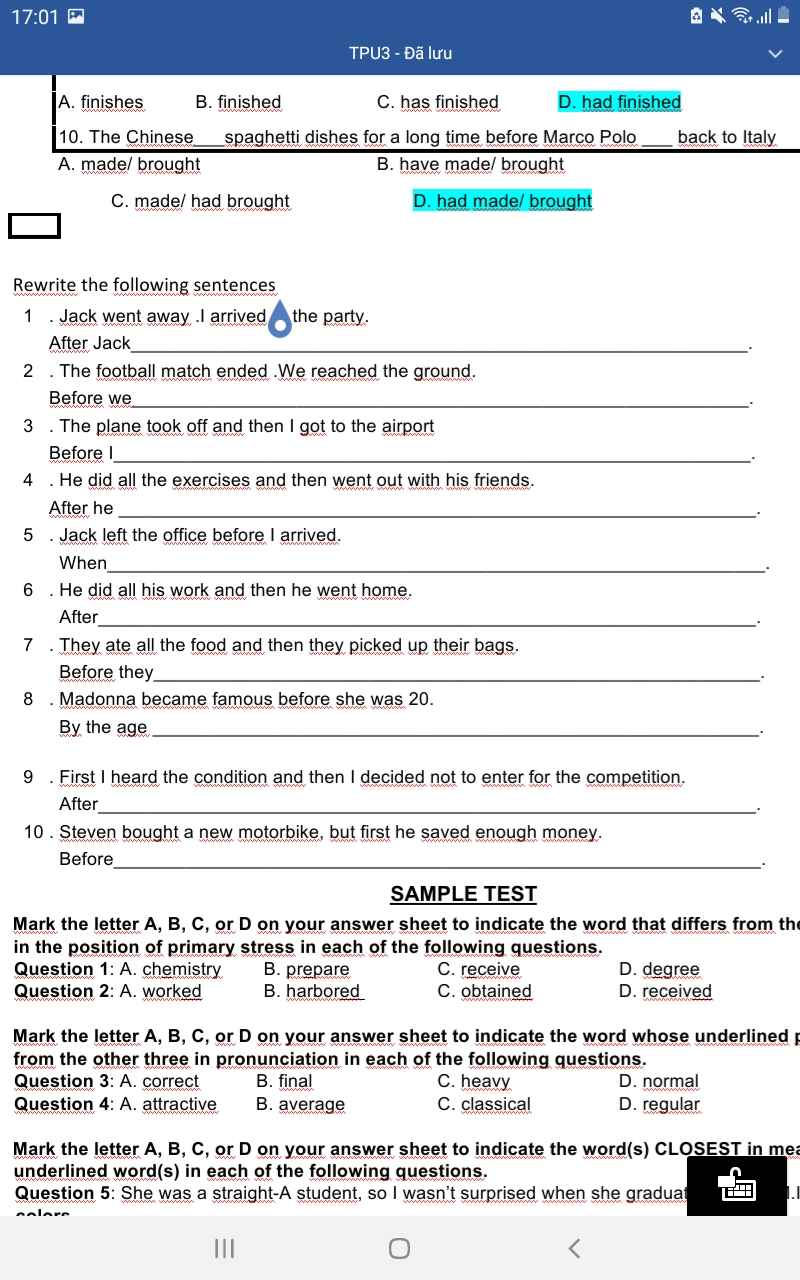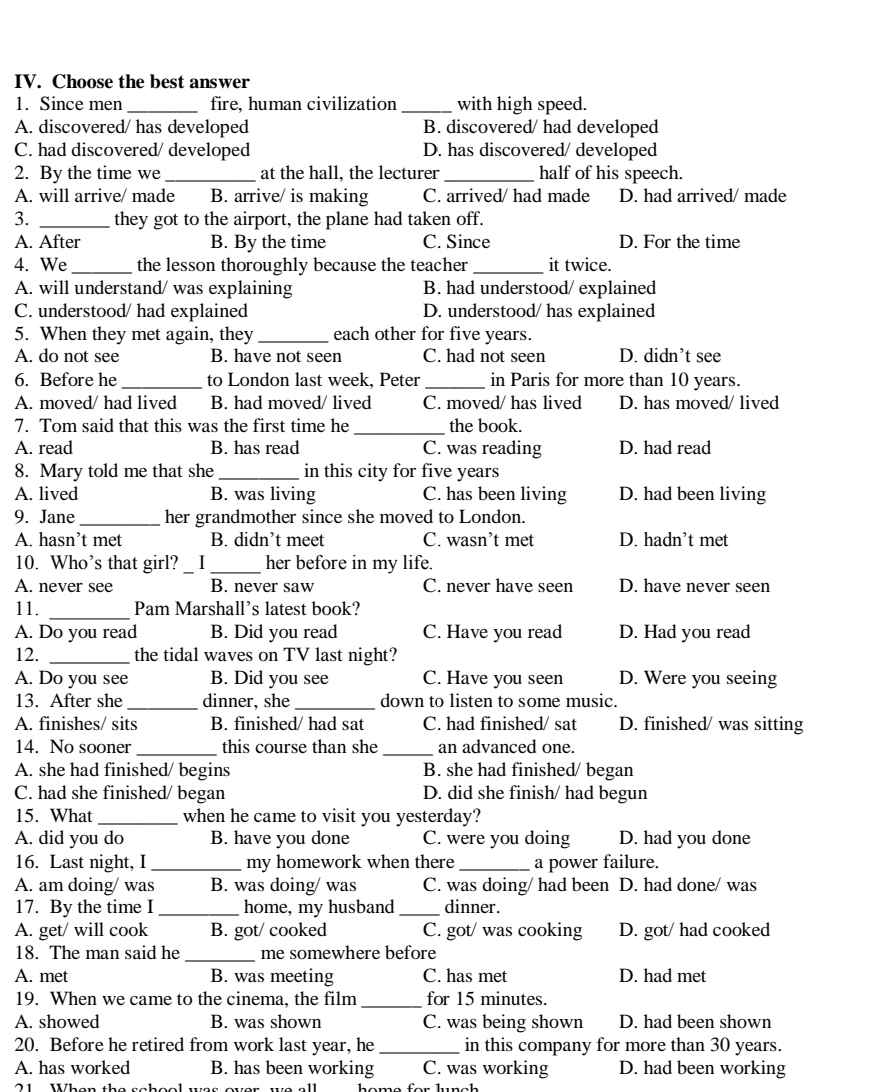1. B
2. C
3. C
4. D
5. B
6. D
7. B
8. D
9. A
10. A
1. B
2. C
3. C
4. D
5. B
6. D
7. B
8. D
9. A
10. A
Write questions for the underlined words.
7.- The company sent the new worker to California.
-->
8.- My sister dreamt about the monster last night.
-->
9.- My grandmother heard a loud scream last night.
-->
10.- We went to the History Museum.
-->
11.- He fell because he slipped on a banana peel.
-->
12- The teacher was angry because he didn’t do his homework.
-->
13.- It took us about half an hour to get to school.
-->
14.- She last rode a bike two weeks ago.
-->
15.- I bought half a kilo of cheese.
-->
16.- He took his driving test two days ago.
-->
17.- He met Linda for coffee.
-->
18.- I was born in 1964.
-->
19.- My cousin started sailing six months ago.
-->
20.- I went to the cinema with my cousins.
-->
Most people relate stress to physical symptoms like an upset stomach or headaches. Research has suggested that negative emotions and thoughts may also have close links to our brain. Researchers have started finding out why we tend to remember negative things more strongly and in more detail than good ones. "The brain handles positive and negative information in different parts. Negative emotions involve more thinking, and the information is processed more thoroughly. Thus, we tend to ruminate more about unpleasant events and use stronger words to describe them than happy ones," said Clifford Nass, a professor at Stanford University.
Rick Hanson also shares the idea that our minds naturally focus on the bad and discard the good. He stated, "negative stimuli produce more neural activity than do equally intense positive ones. They are also perceived more easily and quickly." This was obtained from his little experiment in which twenty people were asked to look at pictures showing anger or happiness. The participants could identify angry faces faster than happy ones even if it was so quickly.
In a journal article Baumeister co-authored in 2001, "Bad is Stronger Than Good", he concluded,
"bad emotions, bad parents and bad feedback have more impact than good ones." This is "a basic and wide-ranging principle of psychology". Thus, Baumeister and his colleagues noted that bad incidents, such as losing your dreamy job and breaking up with your girlfriend or boyfriend, may have a greater impact than landing a job or receiving a marriage proposaL
Part 1. Choose the best answers to complete the following sentences.
1. People have generally related stress to ______.
A. physical symptoms
B. brain damage
C. ruined relationships with other people
2. Positive events take ______ to perceive than/as negative ones.
A. less time
B. more time
C. the same amount of time
3. Positive things ______.
A. do not produce neural activity
B. produce more neural activity than negative ones
C. produce less neural activity than negative ones
4. The best title for the above text is ______.
A. Stress makes us tired
B. People try to forget bad events.
C. Bad events have stronger impacts than good ones
Part 2. Decide whether the following statements are True (T), False (F) or Not Given (NG).
1. Positive emotions are easier to be forgotten than negative ones.
2. All information is processed in the same part of the brain.
3. The more we try to forget a bad event, the more we think about it.
4. Positive thoughts protect us from stress.
5. It's a wide-ranging rule that bad events have more influence on us than good ones.
Mog mọi ng giúp mik :)))
Mog mọi ng giúp mik :)))
Dạ mọi người giúp em với ạ.Em cảm ơn ạ
Giúp em vs ạ